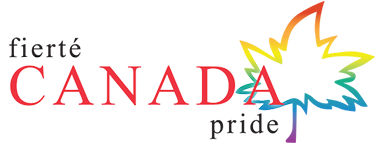2021 BOARD RECRUITMENT SERIES – Intro to Disability Awareness & Intro to Disability Justice
by Nicole Utulinde | Jul 6, 2021 | Uncategorized
Intro to Disability Awareness
People with disabilities represent the world’s largest minority, and the only minority group that any of us can become a member of at any time. People with disabilities are also the third largest economic power behind China and the United States and yet they still experience barriers, prejudice, and bias on a daily basis.
Our workshop challenges all to more fully address ableist notions of how we think about, and label, our bodies, minds, and senses.
Our Disability Awareness workshops gives you the tools to understand what disability is, the types of disability, the current language of disability, what ableism is, how you can actively work to fight against it, and tips for disabled people and allies alike to better ensure equity in all that you do.
Intro to Disability Justice
Disability Justice is a movement started by and meant to center disabled, Black, Indigenous, people of colour, 2SLGBTQIA+ people. Ableism encourages the centering of “normal” and “productive” and devalues disabled bodies, brains, and senses, seeing them as “invalid”, “unnatural”, and “unworthy”, leading to exclusion and oppression. Disability Justice works to move away from segregation, isolation, and ableism and move towards accessibility, equity connection, and interdependence.
Disability justice is an ongoing practice that recognizes the inherent worth of every person and sees us as whole beings with differing strengths and needs. Disability justice challenges the ways we think about, and label, bodies/minds/senses.
Increase your disability knowledge and engage in dialogue as we explore new ways of doing and perceiving, including the ten principles of disability justice and how they can be utilized in daily life. Also covered, how to utilize these practices and principles in your workplace.
About our presenters
Heather McCain (they/them)
Heather McCain (they/them) is Executive Director of Creating Accessible Neighbourhoods (CAN), a non-profit they founded in 2005. Heather built CAN from a small grassroots organization in two communities to an organization delivering workshops and adding their voice to projects and events across Turtle Island (North America).
Heather’s own experiences with multiple types of disabilities, neurodivergence, inaccessibility, and ableism led them to become a well-known and respected advocate, speaker, educator, and activist who works to create equity, celebrate diversity, and educate about and implement accessibility.
Heather recognizes that those within the disability community have intersecting identities and works hard to ensure a multitude of voices and experiences inform their work and the work of CAN. Heather is committed to centering decolonialization, using an intersectional lens and disability justice framework, and doing cross-movement organizing.
Heather is a Crip Doula. This is a Disability Justice term for someone who helps disabled people navigate scomplex systems, providing resources, support, and building community. Members of Chronically Queer gave this title to Heather. CQ is a support group Heather facilitates for LGBTQ2SIA+ folk with chronic health conditions.
info@canbc.org
Harmony Bongat (she/her)
Harmony Bongat (she/her) became involved with Creating Accessible Neighbourhoods (CAN) when she attended Chronically Queer, a support group Heather facilitates for 2SLGBTQIA+ folk with chronic health conditions. Harmony is a disability justice advocate and educator, as well as a researcher of 2SLGBTQIA+ history for CAN.
Harmony’s experiences as a disabled person with multiple intersecting identities informs her work. Harmony is passionate about disability awareness and sharing her story in order to further conversation about how we can better meet the needs of disabled people, build community, and empower those currently pushed to the margins.
Harmony’s experiences as a disabled person with multiple intersecting identities informs her work. Harmony is passionate about disability awareness and sharing her story in order to further conversation about how we can better meet the needs of disabled people, build community, and empower those currently pushed to the margins.

